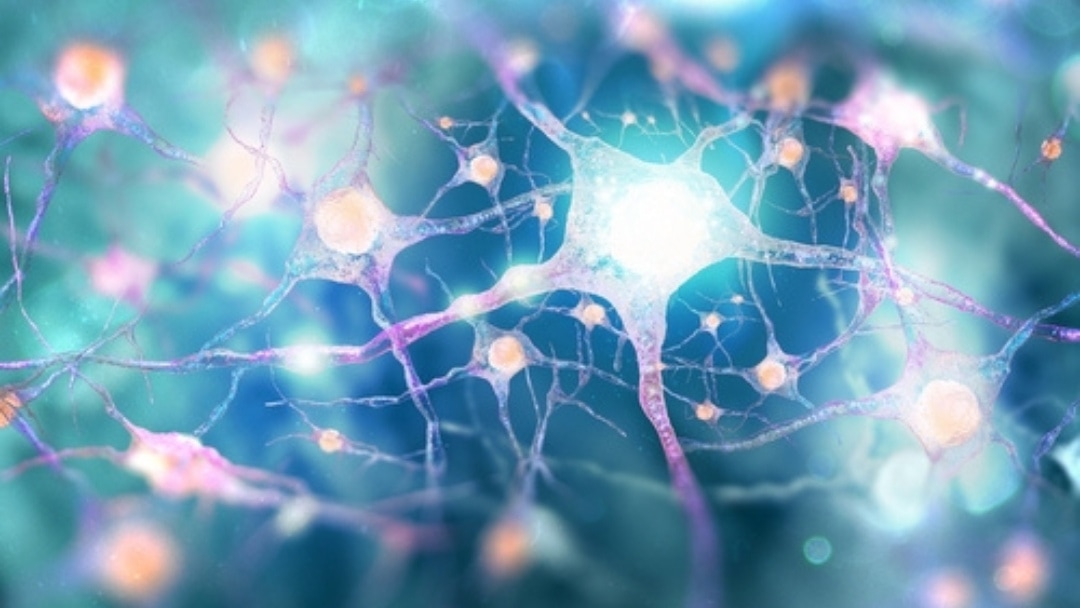We interviewed Andrea Nakayama of the Functional Nutrition Alliance about the use of functional nutrition for anxiety.
You can watch the replay below:
JAMA Pediatrics estimated in February 2019 that 7.7 million U.S. children (16.5%) have at least one mental health disorder. Anxiety is a large component of most mental health disorders. Although mainstream medicine may be quick to either say “it’s all in your head” or to prescribe an anti-depressant or anti-anxiety medication (which can be very dangerous to children), the truth about anxiety can be a far deeper issue.
By looking at results of specialized testing for root causes of a disorder – known as functional medicine – a clearer picture may arrive as to the origins of anxiety. Research scientists are discovering that inflammation and nutritional deficiencies are key contributors to anxiety. Common nutritional deficiencies in a person with anxiety are:
- Magnesium
- Omega-3 fatty acids
- Vitamin D
- Lithium orotate (a naturally occurring mineral, not the pharmaceutical prescription)
- Vitamin C and other anti-oxidants
- B vitamins
- Zinc
- Neurotransmitters such as GABA
In addition, a lack of helpful gut microbes can contribute to anxiety and other mood disorders, as some microbes actually produce neurotransmitters in the gastrointestinal tract.
A Standard American Diet (SAD) can also easily add to the problem of anxiety because it is nutritionally deficient, inflammatory and full of “foods” that contain ingredients to which many people are allergic or sensitive.
Other factors contributing to anxiety are:
- Lack of sleep
- Infections that breach the blood-brain barrier
- Low cholesterol
- Low blood sugar
- Toxicity
- Excess dopamine
- Excess glutamate
Listen in as Andrea explains how a functional-nutrition approach can improve your child’s symptoms of anxiety.
About Andrea Nakayama FNLP MSN CNC CNE CHHC
Andrea Nakayama is an internationally known Functional Medicine Nutritionist, educator, and speaker who is leading a movement to transform the health industry into a system that WORKS, empowering patients and practitioners alike with the systems and tools of Functional Nutrition.
She is a Functional Medicine Nutritionist and the President, Founder, Clinical Director of the Functional Nutrition Alliance.

Her passion for this nutrition revolution came as a result of a personal family tragedy. Her young husband, Isamu, was diagnosed with a fatal brain tumor while she was just seven weeks pregnant with their only child. It was in overcoming his prognosis of six months and prolonging his life for another two years that Andrea’s expanding interest in food as personalized medicine became her full-time passion and purpose.
Andrea formed Functional Nutrition Lab in 2012 to further educate health practitioners in both the science and physiology of nutrition and in the art of the Functional Nutrition practice, providing professionals of diverse backgrounds with advanced tools and the depth of knowledge necessary to effect substantive changes in the lives of their own clients and patients as she has. As her reach and impact have grown, Andrea has focused her mission onto personalized medicine as a means of transforming healthcare at large, delivering to each person the opportunity to take their health into their own hands, thereby gaining more ownership over their everyday choices in relation to their signs, symptoms and ultimate health.
Andrea is celebrated as a leader in the field of Functional Nutrition because of her unique ability to teach and inspire practitioners and patients alike. Andrea synthesizes art and science, empathy and physiology, intuition and problem solving, into a system that truly helps people get to the root cause of their illness, create a path towards wellness, and find their way back to life. You can find out more about Andrea and her work at her website www.fxnutrition.com
Disclaimer
This webinar is not a substitute for medical advice, treatment, diagnosis, or consultation with a medical professional. It is intended for general informational purposes only and should not be relied on to make determinations related to treatment of a medical condition. Epidemic Answers has not verified and does not guaranty the accuracy of the information provided in this webinar.
Still Looking for Answers?
Visit the Epidemic Answers Practitioner Directory to find a practitioner near you.
Join us inside our online membership community for parents, Healing Together, where you’ll find even more healing resources, expert guidance, and a community to support you every step of your child’s healing journey.
Sources & References
Atladottir, H.O., et al. The increasing prevalence of reported diagnoses of childhood psychiatric disorders: a descriptive multinational comparison. Eur Child Adolesc Psychiatry. 2015;24(2):173-83.
Bayer, J.K., et al. The Cool Little Kids randomised controlled trial: population-level early prevention for anxiety disorders. BMC Public Health. 2011;11:11.
Berk, M., et al. So depression is an inflammatory disease, but where does the inflammation come from? BMC Med. 2013;11:200.
Bitsko, R.H., et al. Epidemiology and Impact of Health Care Provider-Diagnosed Anxiety and Depression Among US Children. J Dev Behav Pediatr. 2018 Apr 24.
Bonnot, O., et al. Children and adolescents with severe mental illness need vitamin D supplementation regardless of disease or treatment. J Child Adolesc Psychopharmacol. 2011;21(2):157-61.
Ceylan, M.F., et al. Lipid peroxidation markers in children with anxiety disorders and their diagnostic implications. Redox Rep. 2014;19(2):92-6.
Costello, E.J., et al. 10-year research update review: the epidemiology of child and adolescent psychiatric disorders: II. Developmental epidemiology. J Am Acad Child Adolesc Psychiatry. 2006 Jan;45(1):8–25.
Guney, E., et al. Oxidative stress in children and adolescents with anxiety disorders. J Affect Disord. 2014;156:62-6.
Karakula, H., et al. [Does diet affect our mood? The significance of folic acid and homocysteine]. Pol Merkur Lekarski. 2009;26(152):136-41.
Leuchter, A.F., et al. Intermediate phenotypes and biomarkers of treatment outcome in major depressive disorder. Dialogues Clin Neurosci. 2014;16(4):525-37.
Marazziti, D., et al. Psychiatric disorders and mitochondrial dysfunctions. Eur Rev Med Pharmacol Sci. 2012;16(2):270-5.
Mitchell, E.S., et al. B vitamin polymorphisms and behavior: evidence of associations with neurodevelopment, depression, schizophrenia,bipolar disorder and cognitive decline. Neurosci Biobehav Rev. 2014;47:307-20.
Rook, G.A., et al. Microbiota, immunoregulatory old friends and psychiatric disorders. Adv Exp Med Biol. 2014;817:319-56.
U.S. Food And Drug Administration. “”Black Box” Warning For Antidepressants.” ScienceDaily. ScienceDaily, 3 Dec 2004.
Warner, B.B. The contribution of the gut microbiome to neurodevelopment and neuropsychiatric disorders. Pediatr Res. 2019 Jan;85(2):216-224.
Whitney, D.G., et al. US National and State-Level Prevalence of Mental Health Disorders and Disparities of Mental Health Care Use in Children. JAMA Pediatr. 2019 Feb 11.
Yang, B., et al. Effects of regulating intestinal micobiota on anxiety symptoms: A systematic review. General Psychiatry. 2019; 32: e100056.
Resources
Amen MD, Daniel. The End of Mental Illness: How Neuroscience Is Transforming Psychiatry and Helping Prevent or Reverse Mood and Anxiety Disorders, ADHD, Addictions, PTSD, Psychosis, Personality Disorders, and More. Tyndale Momentum, 2020.
Brogan MD, Kelly. A Mind of Your Own: The Truth About Depression and How Women Can Heal Their Bodies to Reclaim Their Lives. Harper Thorsons, 2016.
Bullmore, Edward. The Inflamed Mind: A Radical New Approach to Depression. Picador, 2018.
Gerson MD, Michael. The Second Brain: A Groundbreaking New Understanding Of Nervous Disorders Of The Stomach And Intestine. Harper Perennial, 1999.
Hyman MD, Mark. The UltraMind Solution: The Simple Way to Defeat Depression, Overcome Anxiety, and Sharpen Your Mind. Scribner, 2010.
Perlmutter, David. Grain Brain: The Surprising Truth About Wheat, Carbs, and Sugar – Your Brain’s Silent Killers. Hodder & Stoughton, 2018.
Scott, Trudy. The Antianxiety Food Solution: How the Foods You Eat Can Help You Calm Your Anxious Mind, Improve Your Mood and End Cravings. New Harbinger Publications, 2011.
Walsh MD, William J. Nutrient Power: Heal Your Biochemistry and Heal Your Brain. Skyhorse, 2014.



